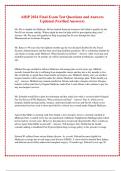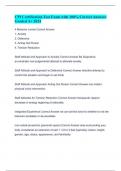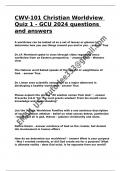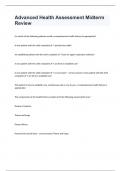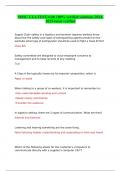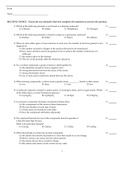Exam (elaborations)
AHIP 2024 Final Exam Test Questions and Answers Updated (Verified Answers)
- Course
- Institution
Mr. Wu is eligible for Medicare. He has limited financial resources but failed to qualify for the Part D low-income subsidy. Where might he turn for help with his prescription drug costs? - Answer- Mr. Wu may still qualify for help in paying Part D costs through his State Pharmaceutical Assistance ...
[Show more]
